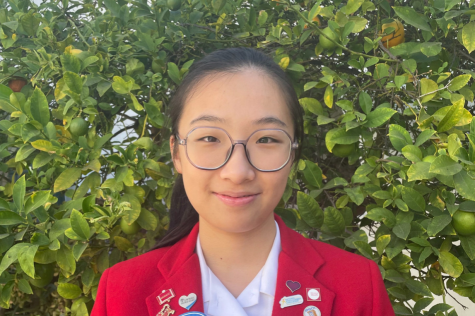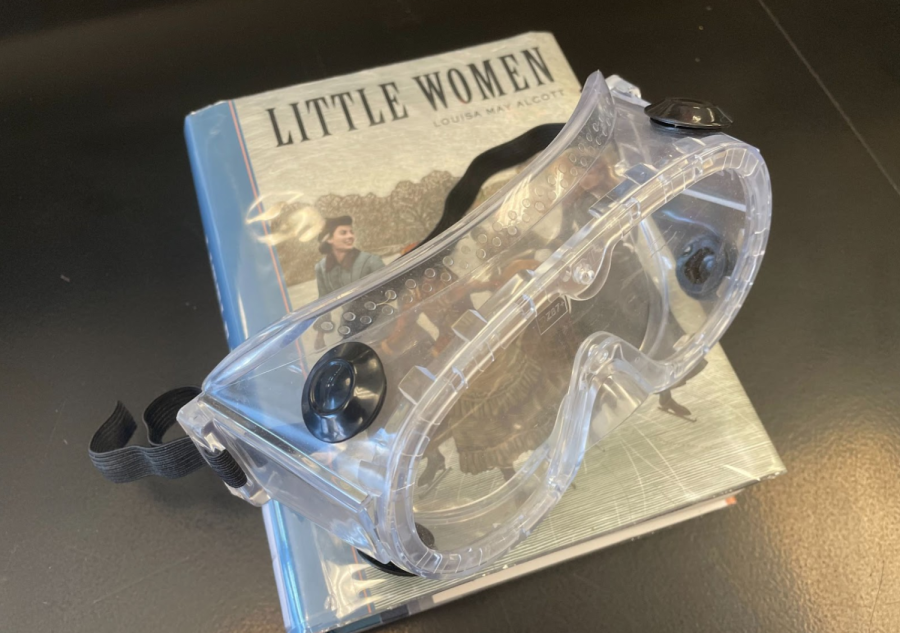Shakespeare vs. Einstein: STEM and humanities on the Hill
At FSH, students immerse themselves in both science and literature through required courses.
Through the Pioneer research program last summer, I was able to explore my interest in humanities, especially anthropology. This experience inspired me to consider pursuing humanities in college. But when I reflected on my experiences at Flintridge Sacred Heart, it seems there are more options available for students who are interested in STEM-related classes.
A well-rounded education includes exposure to both humanities and STEM. However, friends around me seem to be more passionate about their Boeing internships and their Honors Scientific Research class than immersing themselves in literature. Is it possible that STEM is overpowering humanities on the Hill?
Although there are actually more humanities courses offered at FSH than STEM courses, Ms. Holly Hunnewell, an English teacher, has noticed some changes in subject interests in recent years.
“It’s been a struggle to maintain the quality [of humanities courses offered] when the focus has been so much on STEM,” Ms. Hunnewell said. “I taught Creative Writing for a few years. But ultimately, the course disappeared because not enough people signed up for it… If students did want to take Creative Writing, they were often told to take a more STEM-related elective instead.”
Ms. Hunnewell indicates that it’s important to have a balance in students’ exposure. Although science triggers curiosity inside a student, humanities help students get in touch with their creative and thoughtful side – independent from their quantitative skills.
It is possible to study both humanities and STEM in higher education because their core skills are similar with each other, especially regarding subjects such as environmental science.
“I think it is a very important place to recognize our responsibilities to the earth and to the environment, and how that overlaps between the humanities and who we are and who we should be,” Ms. Hunnewell said.
Social studies teacher Ms. Stephanie Gonzalez Doo sees that STEM and humanities are similar in their learning methods.
“The scientific method [is used in STEM] to create a hypothesis and then conduct experiments to see if that hypothesis is correct or not,” Ms. Gonzalez Doo said. “In the social sciences, we come up with a research question and analyze different types of content. In history, for example, we look at primary and secondary sources, and that’s our method of analysis. Instead of analyzing experiments, we analyze content.”
But at the end of the day, it’s the students’ passion that drives them to dive deeper into an academic field.
“Generally, I think that students should, in the words of the scholar Joseph Campbell, ‘follow their bliss.’ My advice to students is to pursue subjects that they’re passionate about. If they are persistent and are dedicated, that will likely lead to… success and happiness,” Mr. Eric Pals, Social Studies Department Chair, said.
At FSH, juniors and seniors have the chance to explore their interests in a research setting. Juniors design the Junior Research Project (or JRP), which focuses on social justice topics such as anti-racism, health care and poverty. In contrast, the Senior Research Project (or SRP) encompasses a broader range of topics and encourages seniors to dig deep into their interested fields. The SRP courses allow students to intertwine STEM and humanities topics.
Dr. Elizabeth Krider, the Honors Scientific Research teacher, brought up the power of independent study.
“An important role that we [teachers and educators] play is to not only guide students but also help them take charge of their learning so that when they leave, it’s not like they’re relying on Tolog.net to learn how to do something. So the independent projects like the JRP and the SRP is that first taste of [being] in charge of your learning. You get to choose what you’re going to study. I think that’s a pretty powerful opportunity for students,” Dr. Krider said.
FSH aims to build an encouraging environment to cultivate Tologs’ interest in different academic fields.
“We [should] encourage people who gravitate toward the humanities to concentrate [on that subject]; and we also insist that people who gravitate toward the sciences balance their education with the humanities.”
There are connections among different subjects, and recognizing those similarities and sharing skills when learning each in the field is more essential than putting them into opposition. While balance between the two disciplines is important in order to achieve a holistic education, individual passion plays a role in how students choose to spend their time.
“I think what’s fantastic about FSH is that they promote curiosity,” Dr. Krider said. “That’s just kind of a liberal education — to be exposed to these different things.”

Wendy Wang is a staff writer, and is new to Veritas Shield this year as a senior. Before, she worked in the school Yearbook and had many experiences with...

